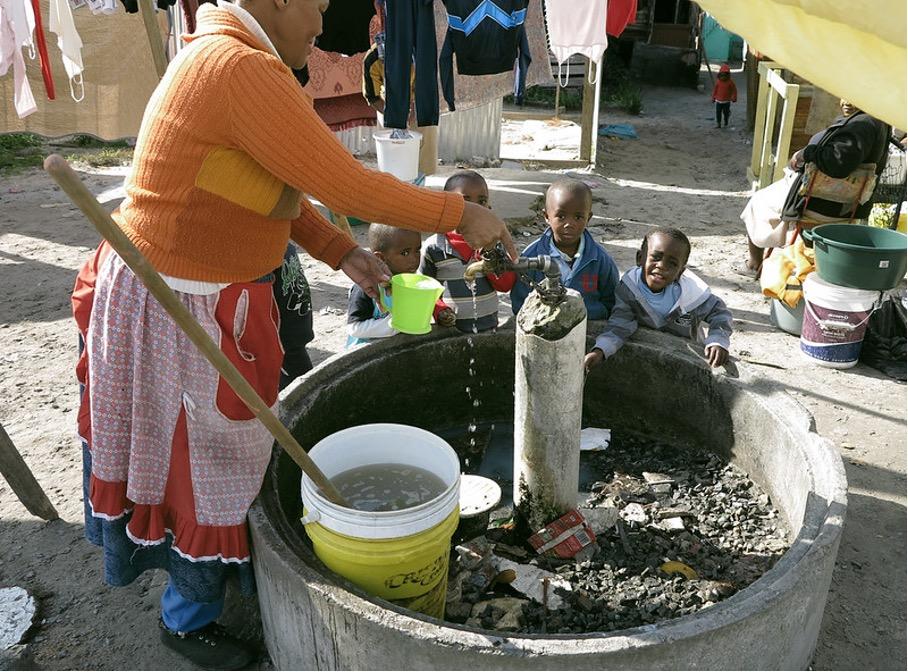A recently published study looks at the Cape Town experience. It underlines that urban water crises “can be triggered by the unsustainable consumption patterns of privileged social groups.”
The study’s authors point out stark differences in daily household water consumption of different social groups. Their model estimates that the elite households can reach a water consumption of over 2000 litres per household per day. Lower-income households are estimated to consume about 178 litres and informal households only 41 litres per day.
The study is an important read. The story of "Day Zero" in Cape Town, South Africa is a story of a crisis of water due to three years of drought. There was a real threat of all taps being turned off on Day Zero. Citizens would have had to queue for their 20 litres of water per day.
But it is also a story of inequality, where 14 percent of the city's population use half of the drinking water supply, where some families have swimming pools and more bathrooms than people, and other families share a toilet and one tap with multiple homes.
The authors of the study look at urban water crises as being generated by unequal power relations that determine who controls water and how water is redistributed within a city.
For example, the crisis of Day Zero motivated many wealthier families to sink bore holes which is putting future underground water supplies at risk.
The study’s authors also find that current policies addressing the urban water challenge run the risk of further undermining both fairness and environmental sustainability. They often focus on putting in place additional and more-efficient water infrastructure and technologies, alongside “progressive“ water pricing where larger consumers pay higher rates.
If such policies are based on “average” household use of water, they do not take into account the social inequalities. The drought restrictions which included increased water tariffs and fines for overconsumption led to people living in overcrowded units being charged unaffordable water bills.
The study underscores that in order to deal with water crises, we need to consider social inequalities in the use of water. For many people in vulnerable households in the City of Cape Town and other cities around the world, every day is "Day Zero.”
“Cape Town’s water crisis worsened by the rich, study finds” (GroundUp, 12 April 2023)
Watch Rachel Mash speaking about the Cape Town water crisis at the Parliament of World Religions






